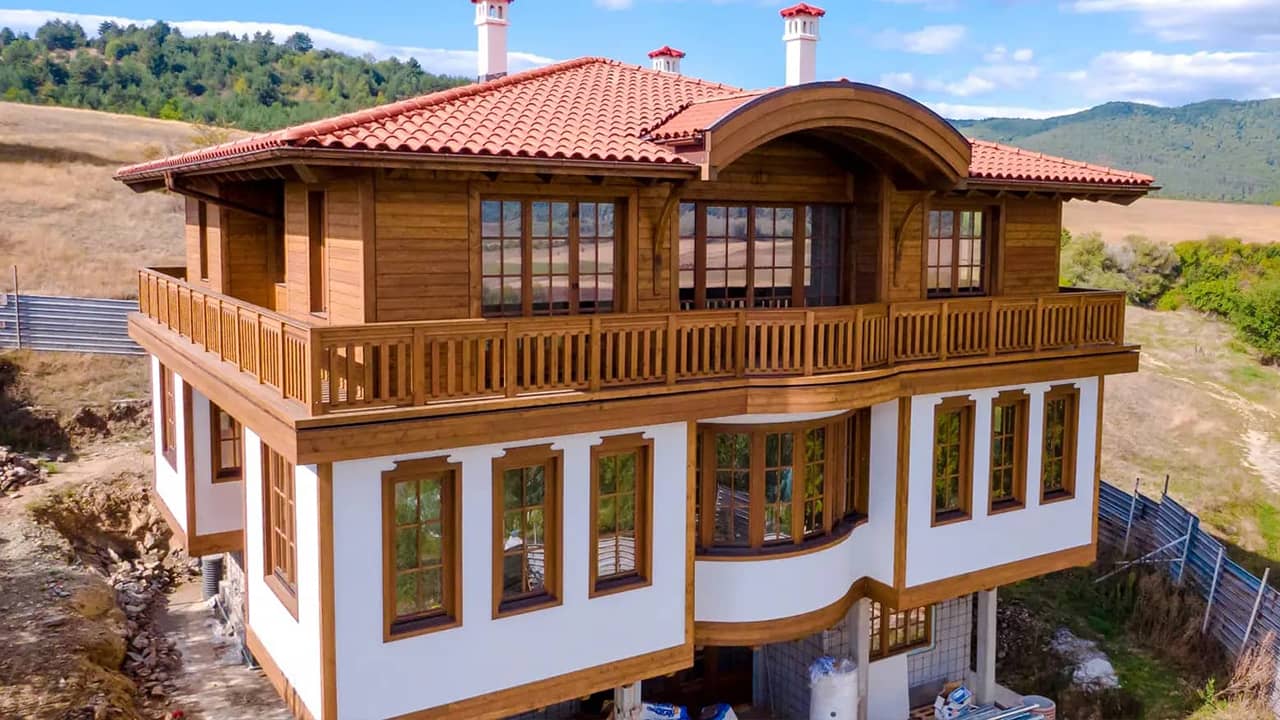Bulgaria, nestled in the heart of the Balkans, boasts a rich tapestry of architectural heritage, with its houses serving as a testament to its cultural and historical diversity. From quaint rural cottages to sleek urban residences, Bulgaria offers a captivating array of housing options that cater to various tastes and preferences.
Historical Background
Origins of Bulgarian Architecture
The roots of Bulgarian architecture trace back to ancient civilizations, including Thracian, Roman, and Byzantine influences. Over the centuries, these diverse cultural interactions have shaped the distinctive architectural identity of the region.
Influences over the Centuries
From the medieval Bulgarian Empire to the Ottoman and Soviet eras, each period has left its imprint on the country’s architectural landscape. Byzantine motifs, Ottoman domes, and socialist-era block housing coalesce to form a fascinating mosaic of styles.
Traditional Bulgarian Houses
Features and Characteristics
Traditional Bulgarian houses, known as “kushchi” or “kъщи,” are renowned for their picturesque charm and functional design. Characterized by steep roofs, wooden balconies, and colorful facades, these dwellings exude warmth and hospitality.
Regional Variations
The architectural styles of Bulgarian houses vary across regions, reflecting local traditions and environmental factors. From the timbered houses of the Rhodope Mountains to the whitewashed homes of the Black Sea coast, each locale boasts its own distinctive flair.
Modern Bulgarian Architecture
Contemporary Trends and Styles
In recent years, Bulgaria has witnessed a resurgence of interest in contemporary architecture, with architects blending modern aesthetics with traditional elements. Sleek lines, minimalist designs, and eco-friendly features are increasingly prevalent in urban and suburban settings.
Fusion of Tradition and Modernity
While embracing modern conveniences, many Bulgarians remain deeply rooted in tradition, incorporating elements of folklore and craftsmanship into their homes. This harmonious fusion of old and new creates a unique sense of identity and belonging.
Popular House Designs in Bulgaria
From quaint cottages to luxurious villas, Bulgaria offers a diverse range of house designs to suit every taste and budget. Classic Bulgarian Revival houses, with their overhanging eaves and intricate woodcarvings, remain perennial favorites among homeowners and tourists alike.
Materials Used in Bulgarian House Construction
Traditional vs. Modern Materials
Traditional Bulgarian houses were typically constructed using locally sourced materials such as stone, wood, and clay. However, modern construction methods have introduced a wider range of materials, including concrete, steel, and glass, offering greater flexibility and durability.
Sustainability and Environmental Considerations
With growing concerns about environmental sustainability, many Bulgarians are turning to eco-friendly building practices, such as passive solar design and green roofs. By harnessing natural resources and minimizing energy consumption, these initiatives help reduce the ecological footprint of residential development.
Interior Design of Bulgarian Houses
Typical Layouts and Furnishings
The interior design of Bulgarian houses reflects a blend of functionality, comfort, and cultural heritage. Open floor plans, high ceilings, and ample natural light are common features, creating a sense of spaciousness and airiness.
Cultural Influences on Decor
From handwoven rugs and embroidered textiles to ornate woodcarvings and traditional ceramics, Bulgarian homes are adorned with a wealth of cultural artifacts that showcase the country’s artisanal craftsmanship and artistic heritage.
Bulgarian Houses in Rural vs. Urban Areas
Contrasts in Architecture and Lifestyle
The architectural styles of rural and Bulgaria houses reflect distinct socio-economic and cultural differences. While rural dwellings emphasize simplicity and self-sufficiency, urban residences tend to prioritize convenience and connectivity.
Advantages and Disadvantages of Each
Rural living offers tranquility, affordability, and a closer connection to nature, while urban life provides access to amenities, employment opportunities, and cultural attractions. However, both lifestyles have their own set of challenges, from infrastructure limitations to social isolation.
Buying or Renting a House in Bulgaria
Legal Considerations for Foreigners
Foreign nationals seeking to purchase or rent property in Bulgaria must navigate various legal and bureaucratic procedures. From obtaining residency permits to conducting due diligence on real estate transactions, it’s essential to seek professional legal advice to ensure a smooth and hassle-free process.
Tips for Finding the Perfect Property
Whether buying a holiday home or relocating permanently, thorough research and careful planning are essential for finding the perfect property in Bulgaria. Factors to consider include location, budget, amenities, and resale potential.
Maintaining a Bulgaria House
Seasonal Upkeep and Maintenance Tasks
Owning a house in Bulgaria entails regular maintenance to ensure its longevity and functionality, especially in the face of harsh winters and scorching summers. From roof repairs and insulation upgrades to garden maintenance and pest control, proactive care is key to preserving property value.
Common Issues and Solutions
Common issues faced by homeowners in Bulgaria include dampness, mold, and structural damage caused by adverse weather conditions. By addressing these issues promptly and implementing preventive measures, homeowners can mitigate risks and safeguard their investment.
Benefits of Owning a House in Bulgaria
Affordability Compared to Other European Countries
One of the primary attractions of owning a house in Bulgaria is its affordability relative to other European countries. With lower property prices, favorable mortgage rates, and a lower cost of living, Bulgaria offers excellent value for money for both residents and investors.
Quality of Life Factors
Beyond financial considerations, owning a house in Bulgaria offers a high quality of life characterized by pristine nature, rich cultural heritage, and a relaxed pace of living. Whether enjoying outdoor activities in the mountains or exploring historic towns and villages, there’s no shortage of opportunities for leisure and recreation.
In conclusion, Bulgaria houses offer a captivating blend of tradition and modernity, reflecting the country’s rich cultural heritage and architectural diversity. From the quaint cottages of rural villages to the sleek residences of urban centers, each dwelling tells a story of craftsmanship, resilience, and adaptability.

